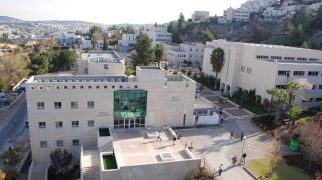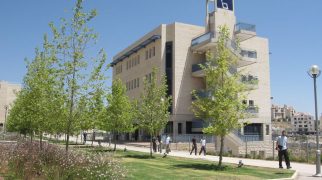November 11, 2020

The Jerusalem College of Technology (JCT), in partnership with the Sulamot Organization, held a first-ever international conference last week which examined the field of tissue engineering from a halachic-scientific perspective.
The “Is a Lab-Grown Burger Fleishig?” Conference was held by the Torah and Technology Center at JCT and brought local and international researchers together with leading rabbis, who discussed fascinating Halachic perspectives of cell culture technology.
The Halachic world faces a considerable amount of challenges with technological developments, such as the printing of organs and engineering of tissue, as well as the production of laboratory meat for culinary purposes which is expected to introduce a consumer revolution and to generate interesting Halachic questions. Is lab produced meat considered fleishig or parve? If it is considered parve, how does the Halacha view cultured meat of a non-kosher animal? What are the Halachic effects of printing organs for transplant? And how will future technologies affect our lives, guided by Halacha?
“The vision of integrating Torah and science is not new. Professor Zeev Lev came up with it when he established JCT 50 years ago,” said Chaim Sukenik, President of the Jerusalem College of Technology. “The technological developments compel us to adapt the vision to the contemporary reality, and this is how our Torah and Technology Center was conceived – to provide the professional academic and Halachic infrastructure to Halachic challenges that will be very relevant in the future to our daily lives.”
Rabbi Yosef Zvi Rimon, head of JCT’s Beit Midrash and Chairman of Sulamot Organization, noted: “The technological development of lab-grown meat for eating purposes instigated wide-ranging in-depth Halachic discussions. The Kashrut question requires scientific technological understanding, or else it can be determined that the lab-grown meat is considered fleishig for any purpose.”
“On the other hand, it is possible to argue that the final product is a combination of muscle cells that are not edible, not considered prohibited, and also went through a significant change and might not be considered fleishig despite the fact that they look like (and taste like) meat. The scientific and Halachic understanding are critical, among other reasons, in order to determine whether extracting a cell from an animal that was not killed is considered (eating) an organ from a living animal. The complexity of the subject is not confined solely to the area of kashrut, because if the culture develops in a food environment that contains Chametz, it will be problematic to eat it during Pesach – even if the meat is eventually considered parve, etc.”
Didier Toubia, co-founder and CEO of Aleph Farms, who produces cultured meat added: “There are many challenges involved in the meat industry. The dependence and intensive use of natural resources like ground and water, increased usage of antibiotics, and of course the ethical reservations about the suffering caused to animals is only part of a long list. Aleph Farms was established based on technology developed by the Technion in cooperation with the Israel Innovation Authority and Strauss company in the framework of ‘The Kitchen’ incubator. The know-how and patents that the company developed are used to reproduce the natural process where tissue is renewed under controlled conditions. Tiny sampling of cattle cells grows into real-size meat, using a fraction of the natural resources and without antibiotics. What characterizes Aleph Farms is the focus on raising whole meat pieces, such as steak, and not processed meat, such as a burger. We use cells which have an aptitude to reproduce quickly without the involvement of genetic engineering, along with a large-scale manufacturing infrastructure, as required by the culinary sector.”
Aryeh Batt, Precise Bio CEO, which develops technology for printing organs, added: “We produce corneas for transplant via high-speed 3D printers. In the coming year we will follow the first experiment in human beings, and our vision is to create a reality where organ donations will be unnecessary. Production can be customized individually to the patient. In the future, this technology will enable the replacement of vital organs, such as heart, liver, and lungs as we know it today, and in the coming years we will produce ‘spare parts’ to damaged tissues in the body in order to improve quality of life. This technological capability will also create an impact on the Halachic world since current Halachic disagreements will become irrelevant.”
The Torah and Technology Center was founded by Rabbi Rimon, Sulamot Organization and President of JCT, Prof. Chaim Sukenik. Run by Rabbi Aviad Bartov, its purpose is to deal with Halachic matters arising from future technological developments that will affect our lives, such as meat culture, organ printing, smart homes and more. The Center is located in JCT-Lev Academic Center, which integrates Torah, Science and Academia, and unites National-religious and Haredi Rabbis with the best minds in Israel and the world, as well as leading industry executives, who are engaged in futuristic technologies.
See full article: https://www.jewishpress.com/news/jewish-news/kosher-food-news/jct-hosts-first-ever-conference-examining-if-lab-grown-meat-is-kosher/2020/11/11/




